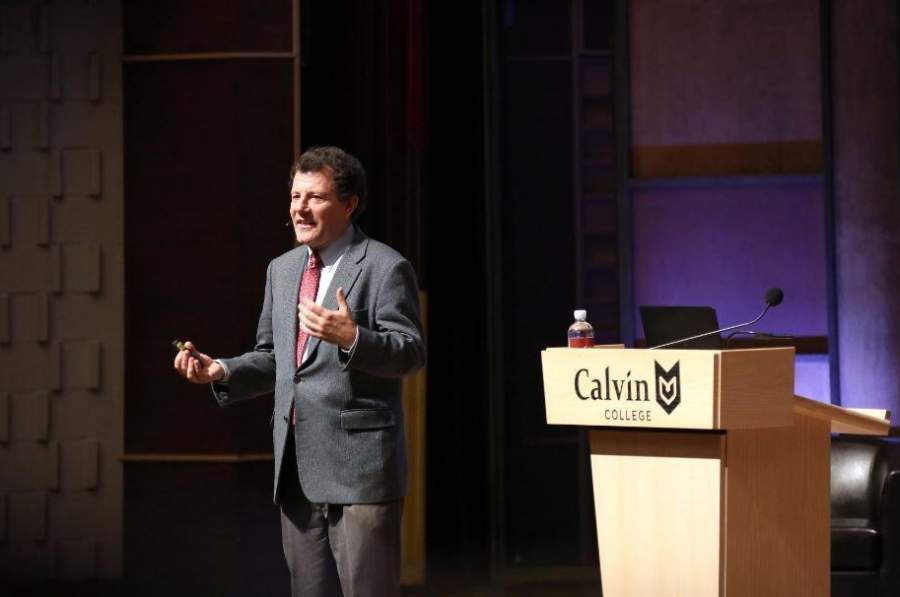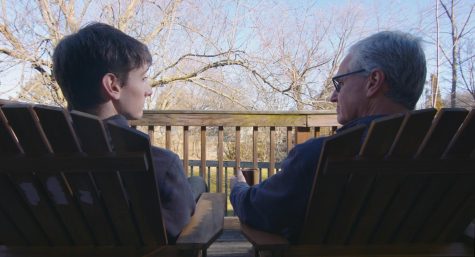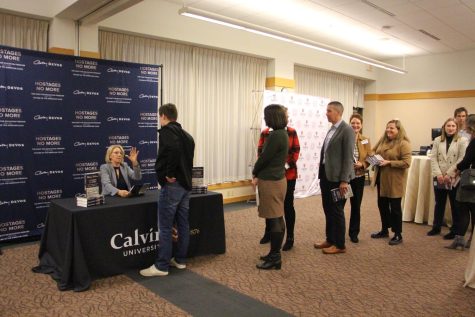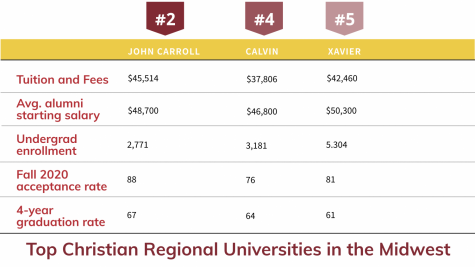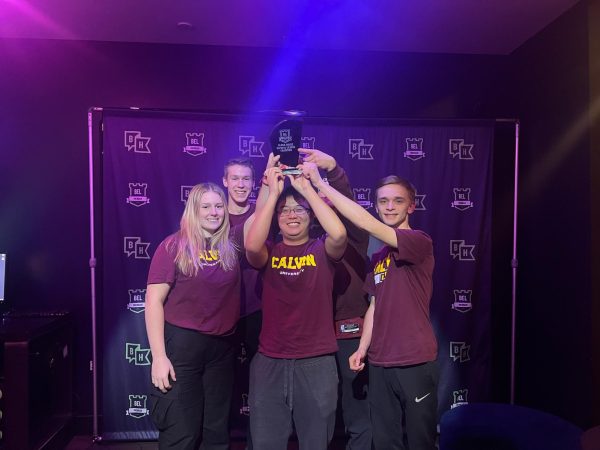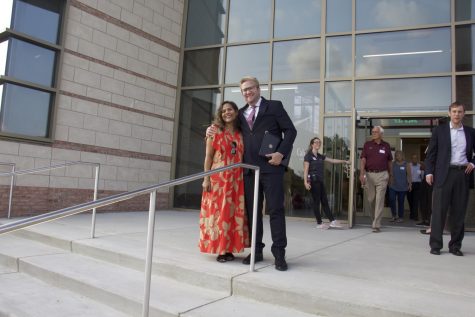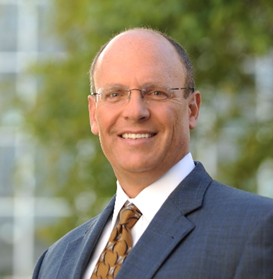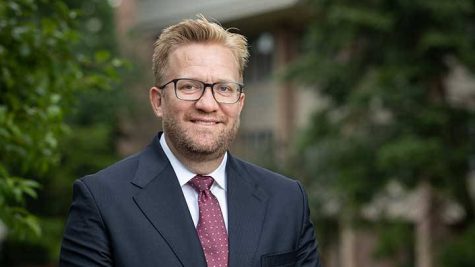New York Times columnist Nicholas Kristof speaks at January Series, advocating for global empathy and hope
Nicholas Kristof is a journalist for the New York Times and Pulitzer Prize winner who is known for his humanitarian work around the world, advocating especially for the rights of women and children in places where they are oppressed. Chimes had the privilege of sitting down with Kristof on Monday, Jan. 14, before his presentation at the January series.
American Isolation
Something Kristof touched on both in the pre-interview and in his lecture was American isolation. Many of his New York Times articles are centered around international issues, and he has worked to create awareness about the wider world in a country that can be very insulated.
“I think in a globalized world, it’s important for people to be exposed to other societies and cultures,” Kristof shared. “Universities are making progress….but [they] tend to bundle students off to cultures quite similar to our own—to Australia, Britain, Western Europe. We grow the most when we’re in societies quite different from our own.”
Americans are not only closed off to the wider world, but also isolated in communities of like-minded people within the country. This leads to an indifference to injustice that Kristof described as an “empathy gap,” which is more common when there are divisions among race, religion, or immigration status.
He shared that the richest 20 percent of Americans donate a lower percentage of their income than the poorest 20 percent.
“Americans in heterogeneous neighborhoods are much more generous,” Kristof said. “When you’re confronted by that need, you reach into your pocket and contribute yourself.”
A key point that Kristof made in his lecture was addressing a question that often comes up in conversations about helping those in need: What about personal responsibility? He responded by recognizing that children grow up in oppressive systems by no fault of their own.
“Often we fail kids before they fail us,” he said. “As long as we’re going to have those conversations about personal responsibility, let’s also have a conversation about our collective responsibility.”
Journalism as justice
Kristof has brought world crises to the attention of the public that are often unnoticed, such as the mistreatment of the Rohingya Muslims in Myanmar or the genocide in Darfur, Sudan. Chimes asked Kristof what issues he believes should be talked about more.
“Right now the starvation in Yemen, I think, is the biggest humanitarian crisis, and we in the U.S. have some responsibility for that because it is our weapons that are being used to bomb the Yemenis,” Kristof said. He also mentioned climate change as something “we are not adequately addressing.”
“Domestically, I think we haven’t really figured out how to address the disintegration of working class communities around the country, and the loss of good blue collar union jobs that used to provide a bedrock of support for families…I don’t think we try very hard.”
Journalism can be a dangerous field, and Kristof is well-acquainted with the risks of his profession. In order to cover injustices, he occasionally has to work undercover in hostile countries. He told Chimes about this process.
“It depends very much by country. In Myanmar I went in as a tourist and I had a bird-watching guide. If I was caught in the wrong places I was going to point out to people the incredible bird life nearby.”
Kristof knows only to well what brutal regimes can do to journalists. He knew Jamal Khashoggi, the Washington Post columnist who was murdered by agents of Saudi Arabia, for 15 years.
“I was just staggered by the thought that as his fiancee waited outside he was murdered and dismembered.”
Kristof went to Saudi Arabia to report on the country shortly after his colleague’s death.
“I was nervous about it but I was treated professionally” he divulged. “I think Saudi Arabia under the crown prince is going in the wrong direction, and Jamal was one example of that.”
As a journalist in a saturated media age, Kristof has found ways to have an impact that is deep and wide. He has more social media followers than any other print journalist, and extended an invitation for Calvin students to follow him.
Speaking about his writing process, Kristof revealed some of his methods for putting together his columns.
“I always have about a dozen columns in the back of my mind, and I try to bounce back and forth between topics that are on the agenda that people care about and those that are off the agenda that I can maybe pull on the agenda,” he told Chimes.
Kristof also stressed the importance of breaking away from the anger that surrounds partisan politics.
“I try to do columns where there is a certain amount of reporting, and I’m not just shouting,” he said. “I really hope some Calvin students will go into journalism. It’s incredibly satisfying to play this role which is a kind of public service, and I think it’s necessary for society. So I hope to have some Calvin students as my colleagues.”
The God gap
Kristof also talked briefly about his perspective on religion in the U.S.
“One of the biggest problems in the country is this ‘God gap,’ this ‘God gulf’ and there are a lot of well-meaning people on each side of that divide, but because of their mutual suspicions, they tend not to work together on issues that they both care about. This is then really debilitating,” Kristof said. “On issues like sex trafficking, there’s great work by conservative evangelicals and great work by liberal feminists, but each side is so suspicious of the other.”
The solution Kristof proposed was more open conversation. “I think it’s really important that Calvin, as a pillar of the faith community, also have outreach to people in a more secular community.”
After affirming that Christians have done great work for justice, he also recognized the ways that the evangelical community has failed to address injustice.
“I fear that the politicization of evangelicalism in the Trump age….will be a historical regret for much of the church,” he expressed, noting that a college campus is the best place to have difficult discussions like these.
Women’s rights
Kristof has advocated tirelessly for women’s rights around the world, and specifically for girls’ rights to education. He explained how many countries place a lower value on girls than boys, and how this kind of oppression is lethal. By a show of hands, the majority of the audience in the January Series believed that there were more women than men in the world, but Kristof explained that this was a misconception.
“Mortality rates are much higher for women,” Kristof said, explaining that undervaluing women and girls is a cultural norm.
“When boys are sick, you take them to the hospital. When girls are sick, you feel their forehead….When there’s not enough food to go around, the food goes to the sons, not to the daughters.”
Human trafficking is evidence of this. Girls are seen as commodities rather than as human beings. Kristof visited Cambodia and witnessed how “[girls’] virginity was being auctioned off to the highest bidder.” He shared that he bought two girls and returned them to their families, and was given a receipt for his purchase.
Somehow Kristof has managed to remain hopeful, and encouraged the audience to do the same. He expressed that humanitarian work sometimes feels like just a drop in the ocean, and it is disheartening to see how much of a mess there still is to clean up. Kristof is an example of one of the many individuals who are collectively leaving more than just a drop. He reminded the audience that progress is possible.
“I’m a believer in drops in the bucket,” Kristof said. “Those drops are transformative.”




